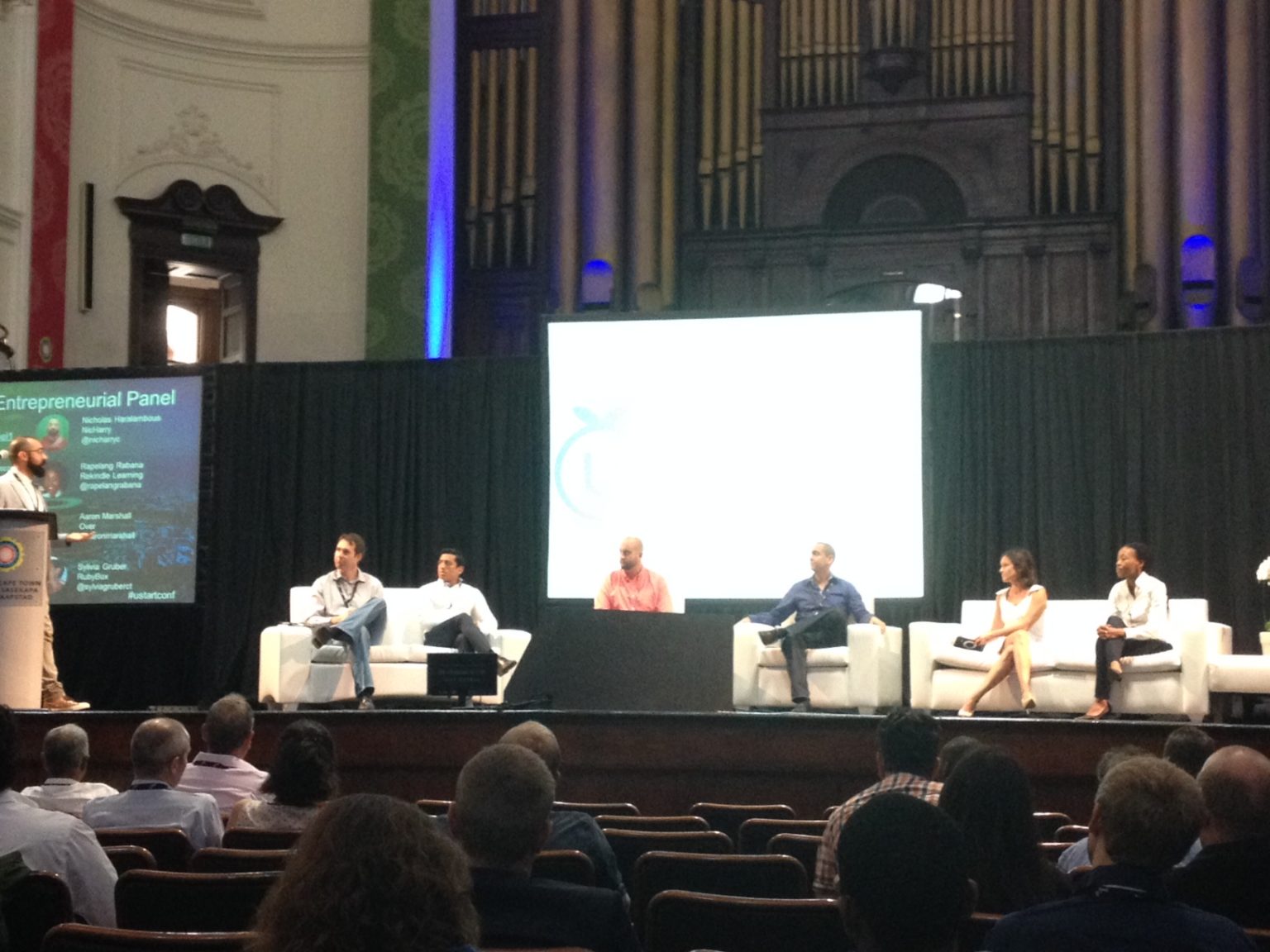African startup founders have been advised there is no need for their businesses to fail if they remain passionate about what they are doing and keep in mind their end goals.
In a panel at the U-Start Africa conference in Cape Town today, chair Nic Haralambous, founder of NicSocks, asked panelists what could be done about the fear of failure in South Africa.
Aaron Marshall, founder of mobile app Over, which in May won the U-Start Global Pitch Competition in Milan, Italy, said passion was crucial to startup success.
“It is about who you are. Who am I, what do I want? Shall I get a corporate job? The reality is that I couldn’t do that,” he said.
“Startups don’t die, they commit suicide. You just give up and blow it all up. And generally that happens through self-destructive things that you do.”
Serial entrepreneur Ryan Falkenberg agreed with Marshall, as did Rubybox founder Sylvia Gruber.
“For me, it comes down to, in my heart, do I truly believe this thing is going to work?” Falkenberg said. “If you really are passionate about what you believe then you will break through those barriers.”
Gruber said: “You have to be really passionate about what you’re doing. And secondly you have to be constantly critical of yourself. Celebrate your small successes, but acknowledge they are small successes.”
The panelists said other vital ingredients included making sure the business was in the correct market and having an eye of the end goal.
“Failure is relative. It is just insight on how close you are to getting it right. In business it is not about winning or losing, it is about incrementally adjusting depending on what the market is telling you,” Falkenberg said.
“Choose the place or industry where someone is going to buy it. Choose the right river, because some rivers flow fast and some rivers flow slow. Pick the rivers that are fast.”
Sheraan Amod, founder of Springlab, spoke about the initial mistakes made by his first company Personera and said he had learnt from them.
“The first mistake I made was thought I had this great, amazing idea. Locally we raised funding. But when we got to the end of the road and we launched the product to market, nothing much happened,” he said. “I think the first lesson I could have learnt a lot faster was that people vote with their wallets. If we’d realised that and pivoted into a different product we would have saved a lot of money.”
He said many entrepreneurs did not know how to give up, but said they had to get better at reacting to markets, which Personera had eventually done.
“If you listen to the market signals you can save yourselves a lot of pain,” he said. “We realised in South Africa that even with a long sales cycle you should probably do this in the United States. I guess another lesson I learnt was that if you’re going to do something that is niche, you’ve got to go global.
“Sometimes you get bogged down in the metrics without having the vision of where it is going to go.”
Daniel Guasco, joint chief executive officer (CEO) of Groupon South Africa, also felt founders should embark on a project with an eventual exit in mind.
“Entrepreneurs who are lean, mean, and validate as quickly as possible, are usually the ones that are a great success,” he said.
“Have the exit in mind – not necessarily selling the company, but the point where it is profitable. Where is this going to go, what are you going to do with this company to show returns for yourself as an entrepreneur?”
Marshall had the last word, using the example of Cape Town company WooThemes, which struggled for years but managed to lay the foundations for future success.
“My best piece of advice? Don’t die,” he said.


